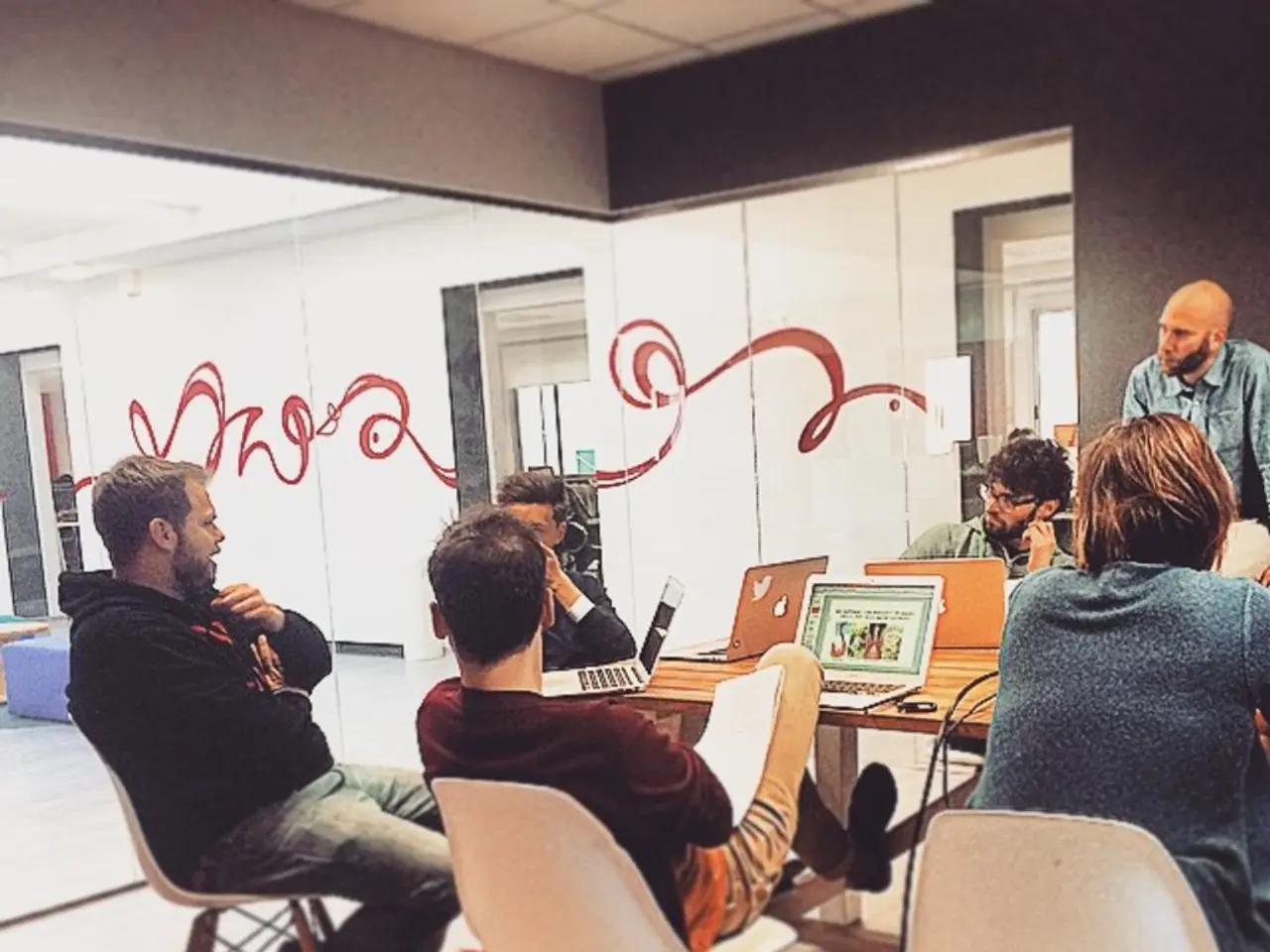UK Hiring Managers Lose About 2 Work Days Per Hire Due to Administrative Tasks, Resulting in an Annually Estimated Productivity Loss of approximately £17,000
In the rapidly evolving world of work, technology, and notably AI, are transforming various sectors, and recruitment is no exception. Weatherhead states that this technological shift offers a real opportunity to make recruitment smarter and more human-centric for everyone involved.
According to a recent survey of 748 HR leaders and 2,025 UK jobseekers, more than three-quarters (77%) of recruiters believe AI can help improve hiring efficiency. However, concerns persist, with 24% of recruiters not confident that AI will make fair decisions, and 37% remaining unfamiliar with AI tools.
Totaljobs, a leading job board, recommends several strategies to streamline the recruitment process. These include automating documentation, feedback input, and scheduling support to reduce the manual workload post-interview. Writing clear, transparent job ads to reduce irrelevant applications is another suggested approach, with nearly two in five (39%) expecting more transparency about role requirements.
The survey reveals that recruiters spend an average of 17.7 hours per vacancy on manual admin tasks, equivalent to more than two working days per hire. This includes 3.6 hours reviewing applications, 2.5 hours scheduling interviews, and 3 hours processing post-interview notes.
To address these inefficiencies, AI tools are being employed to automate and enhance several recruitment processes. For instance, AI-powered applicant tracking systems (ATS) like Greenhouse, Workable, and Recruit CRM parse CVs, rank candidates based on job descriptions, and filter out unsuitable profiles quickly, saving recruiters considerable time.
Platforms like Juicebox AI enable recruiters to find highly qualified candidates using simple language queries, providing faster and more precise candidate matches than traditional methods such as LinkedIn searches. Tools such as Humanly.io automate repetitive tasks like interview scheduling, initial candidate screening, messaging, and reference checking, improving recruiter efficiency and candidate experience simultaneously.
AI also learns from past hiring data to recommend top candidates for future roles and detect red flags by analyzing language patterns, helping reduce unconscious bias and promoting fairer selection. Given the complexity of modern hiring, especially with hybrid and remote work, AI helps manage large candidate pools efficiently, ranking and filtering candidates faster than humanly possible.
The UK government is also embracing AI in recruitment, planning to deploy AI job assistants by 2027 to help jobseekers with application processes and reduce "boring life admin," thus addressing systemic inefficiencies in public hiring and related services.
Over a third (34%) demand faster feedback, and over two-thirds (77%) of jobseekers would like access to a tracker where they could track their application status. Moreover, 28% of jobseekers say they’ve dropped out of a hiring process altogether, due to unclear communication, delays, or too many interview rounds.
Totaljobs recommends reducing the number of interview rounds to mitigate interview fatigue. By implementing these strategies, AI tools optimize hiring by reducing manual administrative burdens, enhancing candidate sourcing accuracy, enabling better communication, and supporting fairer, faster hiring decisions across both private and public sectors in the UK.
References:
- Totaljobs
- Weatherhead
- Juicebox AI
- UK government
- Humanly.io
In light of the increasing usage of AI in recruitment, finance departments might consider investing in AI-powered applicant tracking systems (ATS) like Greenhouse, Workable, and Recruit CRM to streamline the hiring process and reduce manual workload. Moreover, platforms such as Juicebox AI can be beneficial for businesses, as they offer faster and more precise candidate matches than traditional methods, thereby enhancing business efficiency.




